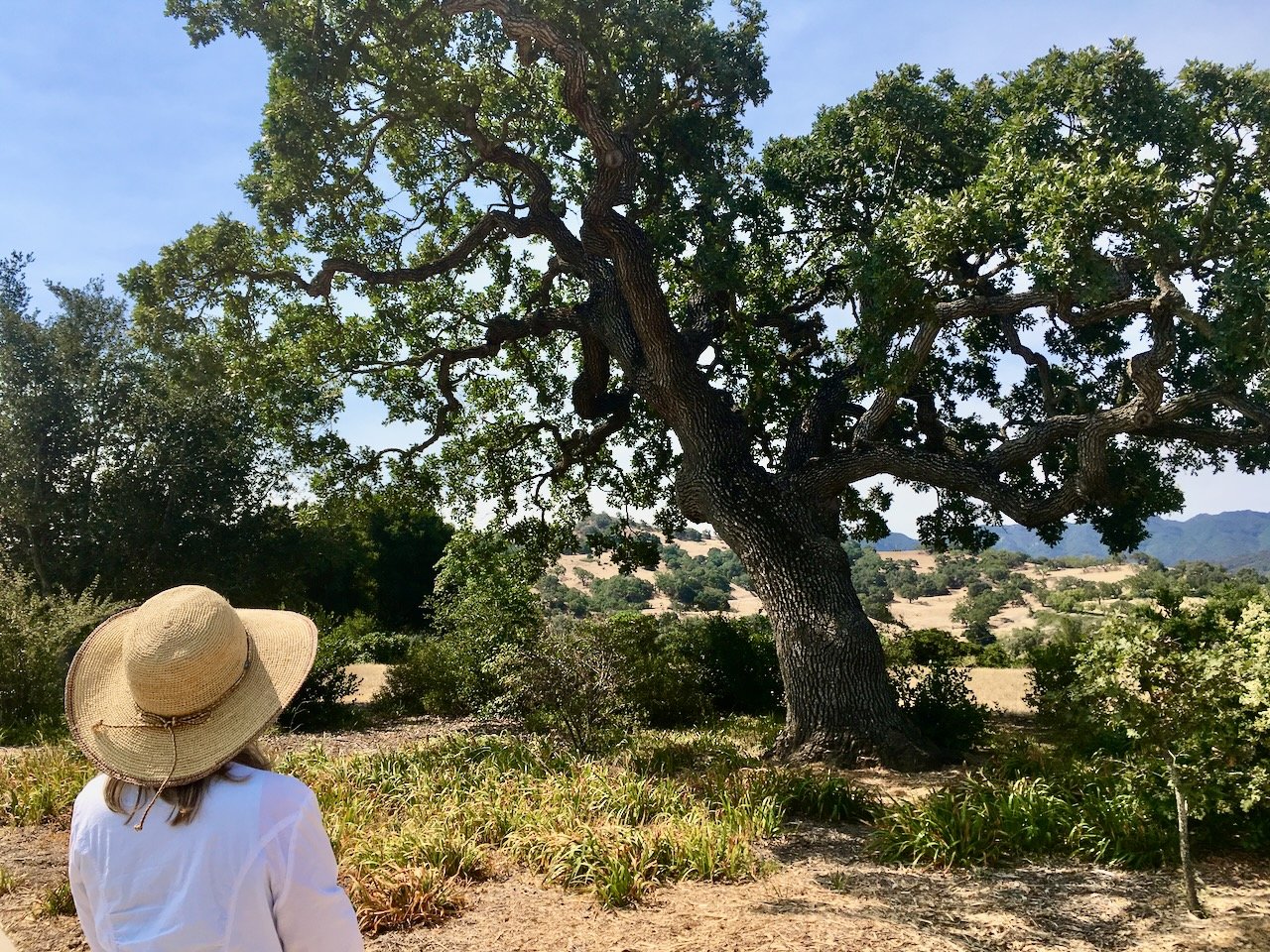Maybe
We sat in the shade of an oak tree in the backcountry of an old California ranch, three girlfriends, sipping tea and sharing thoughts. Butterflies fluttered around us, occasionally lighting on a hat or a shoulder, as though mistaking us for flowers, which was flattering. But our conversation was not carefree. We talked about bereavement and war and mounting worries. We were trying to process a horrific attack in Israel, and turmoil in our own government, and, as always, the ominous fragility of the very planet.
Variations of this scenario have always been so, but lately the dissonance is more gruesomely apparent. And it could certainly change in an instant, but at this juncture it was clear we had drawn the lucky hand. We inhabit a safe, detached compassion, although even our own safety feels less inviolable as brutal power casts its shadows across our interconnected world. We struggle for a way to contain the knowledge of conflicting realities colliding constantly, of our privilege in the face of pain, of our good intentions and personal sorrows and feelings of helplessness.
It’s a familiar disjunction, a regular part of life. But the butterflies were real, and the dappled sunlight beneath the oak trees, and the hot bracing tea poured from a thermos. Each moment contains miracles along with crushing grief.
Diane told us about her late friend Norm, a funny, kind, and gracious man who was a survivor of Auschwitz. The first time she noticed the ominous numbers on his skin, she touched his wrist and asked him how he managed to find joy.
His reply: “We have an obligation to live life joyfully since we are the lucky ones who survived."
An obligation?
But it does feel un-gracious to reject the gifts we have been given. And if Norm could navigate in this way despite everything he witnessed and endured, why not us?
I want to live as Norm did. I am striving daily to avoid succumbing to cynicism and despair, which are self-fulfilling prophecies and highly contagious, trying instead to find or create a space where realism and hope can co-exist. I believe there are ways to heighten what is good and beautiful without denying what is not.
Maybe gratitude and love are forms of power. Maybe facing the frightening facts can fuel defiance and resistance and small-scale solutions in our own realms of influence, giving our hope a stronger foundation.
In the meantime, when invited into wonder, please accept. There is no harm in sitting on a ridge feeling grateful, or laughing when a butterfly lands on your hat, or leaning into the mystery without expecting answers.
